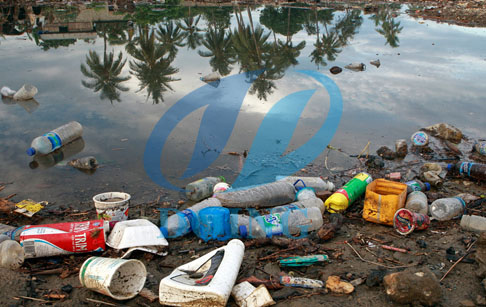 Tel/WhatsApp
Tel/WhatsApp




Last month, the city launched a R10m pilot project backed by the Japan International Co-operation Agency to extract oil from plastic that would otherwise have gone to landfill. Japanese companies CFP Corporation and Kanemiya have installed a waste-to-oil plant at the Kraaifontein Integrated Waste Management Facility, capable of converting 500kg of plastic into 500 litres of oil per day.
The city recycles only 16% of its waste, far shy of the 25% target in the government’s 2011 National Waste Management Strategy.
"A large amount of the plastic sent to Kraaifontein is not recyclable because it is too small, because it is contaminated, or because it contains multiple layers of plastic that melt at different temperatures" says WastePlan MD Bertie Lourens, whose company collects recycling from residences and businesses, and manages the Kraaifontein plant. This plastic ends up in landfill because it is not currently economically viable to recycle it.
A big part of the appeal of the pilot plant is that it will be able to use small plastic items, or tailings, and contaminated plastic, he says. Three types of plastic are to be harvested — polyethylene, polypropylene and polystyrene — and technicians plan to experiment with different ratios to see what effect this has on the quality of the oil produced.
To convert plastic to oil, it is washed, shredded, and then heated under pressure to break down its long-chain polymers into short-chain hydrocarbon gases and oil, in a process called pyrolysis. The plant cannot process plastic containing halogens, such as chlorine (found in PVC), because these gases are so corrosive they would damage the equipment.
About 70% of the oil is to be used to power the plant’s 150kW electricity generator, while the rest will probably be used to fuel diesel-operated vehicles, says Mr Lourens.
CFP Corporation has provided the technology and equipment for the pyrolysis plant, while Kanemiya has provided specialised industrial washing machines to clean the plastic. CFP has a commercial pyrolysis plant in Japan that recycles plastic food containers from about 500 chain stores, and another at a plastics recycling factory in Malaysia, says spokeswoman for the Japan International Co-operation Agency Claire Hirsch.
"We have a big plastic waste problem in SA, so there is always room for technological innovation," says University of Cape Town chemical engineering professor Harro von Blottnitz. Germany achieves 30% plastic recycling, he says.
Germany incinerated much of its plastic, providing thermal energy and electricity, but feasibility studies by Eskom and the German agency for international development co-operation concluded it is not viable for the City of Cape Town.
"Incinerators are extremely costly. They need extensive air-cleaning equipment because the air pollution potential is so great."
The big question is whether the pilot plant can provide an economically viable "home" for local plastic earmarked for landfill.
"We still need to determine the exact quality of the fuel it produces … and the amount of energy it yields. We have no idea yet of the economics of this plant," says Mr Lourens.